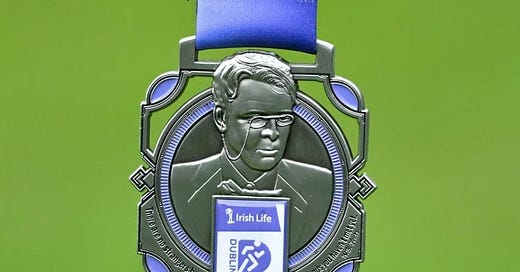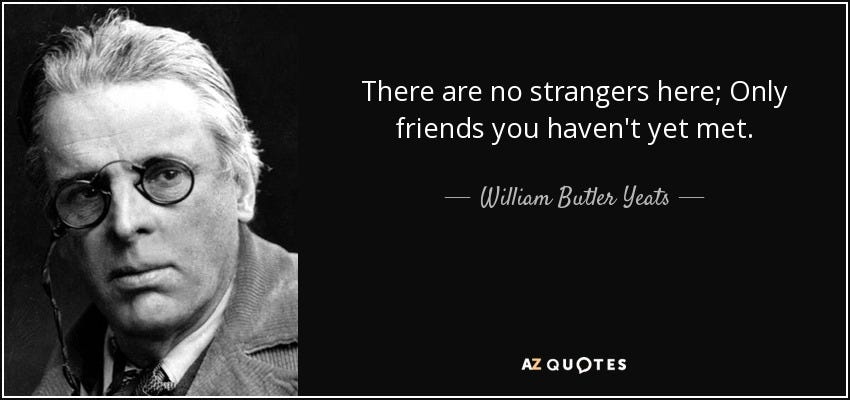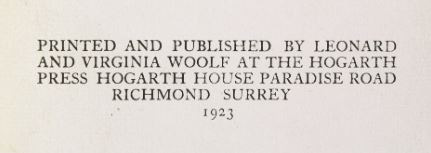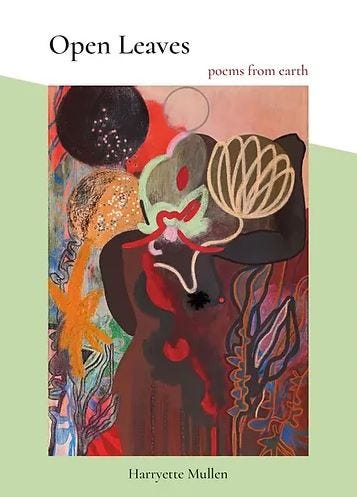Pinks #4: Green Stuff All Over
A big mistake about W.B. Yeats / A new chapbook by Harryette Mullen
It was reported this week that runners who complete next month’s Dublin Marathon will be given a medal featuring local poet W.B. Yeats, who won the Nobel Prize for Literature a century ago. It’s in the news, though, because the quote attributed to Yeats on 20,000 medals — “There are no strangers here; only friends you haven’t met yet” — isn’t to be found anywhere in his poetry, prose, plays or letters, though it’s been knocking around the online inspirational-quotes community for a while now.
If other marathons around the world want to raise their game in the poetry-quoting stakes, I’m happy to advise. Boston Marathon could do worse than Robert Frost (“And miles to go before I sleep”). And New York, of course, has Frank O’Hara’s “Personism” (“If someone’s chasing you down the street with a knife you just run”).
A word of caution, though: if the organisers of the London Marathon want to verify T.S. Eliot’s line about the crowd on London Bridge, I would advise them not to use the first British edition of The Waste Land — published in September 1923 by Leonard and Virginia Woolf — where
A crowd flowed over London Bridge
becomes
A crowd flowed under London Bridge*
But the organisers of the London Triathlon might want to run with it.
* Somehow, Eliot missed the mistake in the proofs the Woolfs sent him, perhaps because it flows strangely well
Pink’s plentiful when
hills and mountains sing
their farewells to spring
— Harryette Mullen
A new publication by the American poet Harryette Mullen is big news. So congratulations to the UK-based Black Sunflower Press for launching their poet/artist chapbook series with Open Leaves: Poems from Earth, Mullen’s first title in a decade.
Continuing the formal approach of her last book, Urban Tumbleweed: Notes from a Tanka Diary (2013) — which used the Japanese 31-syllable tanka to record a year of daily walks — Open Leaves is written in runs of haiku, separated by prose poems.
The haiku, which gather images of abundance from the harvest of farms and gardens, are delicious clusters of syllables, often coloured with full and subtler rhymes:
Rose is before a
poet composes or knows
yet what a rose is.
…
Glowing lanterns hang
on flaring branches, lemon
illumination.
…
Lovers of clover
plant green stuff all over
as forage and cover.
Mullen’s aesthetic here is complemented by Tiffanie Delune’s six bright, dancing artworks, each of which has a page of its own in this pleasingly large-format pamphlet. But the prose poems bring a different voice into the sequence, which darkens the pastoral bliss of ripe playfulness, framing the rural American landscape within its deep history of colonialism, genocide and ecocide. The first, “On Land”, takes its epigraph from Robert Hayden’s poem on the slave trade, “Middle Passage”; “Flung from Dust”, sees the human farmers blur into the plagues they blame for their need (“Like dust, flung by wind, like swarming grasshoppers, they picked up and set down in another place”); and “Exiting Earth” satirises the sinister space-race rhetoric of Silicon Valley (“We choose to outsource ourselves to a far-off galaxy”).
Inevitably, the shadows cast by these pieces start to extend into the haiku, with their apparently innocent gardening talk of “borders” and “native” and “invasive” species (not to mention the “frequent flyers” known as pollinators). But Mullen holds the happiness and damage of her landscapes in expressive tension, as in the lines with which the chapbook begins, by the Black Arts Movement poet, Sonia Sanchez:
let us be one with
the earth expelling anger
spirit unbroken
NOTES
You can buy Open Leaves direct from the publisher here: https://www.blacksunflowerspoetry.com/product-page/open-leaves-poems-from-the-earth
You can hear Harryette Mullen read a new poem employing the haiku as a stanza form here: https://www.poetryfoundation.org/poetrymagazine/poems/160869/the-only-ones







